We often ask, why is X so expensive? (housing, pharma…) I suspect the question is backwards. We should ask, how does anything ever get/stay cheap? Everything starts out inefficient, wasteful, and therefore expensive. It takes an intense, dedicated campaign to drive costs down.

We often ask, why is X so expensive? (housing, pharma…) I suspect the question is backwards. We should ask, how does anything ever get/stay cheap?
“Science was born when, with the progress of technology, the experimental method eventually overcame the social prejudice against manual labor and was adopted by rationally trained scholars” Edgar Zilsel, “The Sociological Roots of Science” (1942) jstor.org/stable/2769053

“Science was born when, with the progress of technology, the experimental method eventually overcame the social prejudice against manual labor and was adopted by rationally trained scholars”

Job security is much greater today than in the early 20th century and before. Day labor and piece work were gradually replaced with full-time permanent employment. pic.twitter.com/7I5ciw6GTI
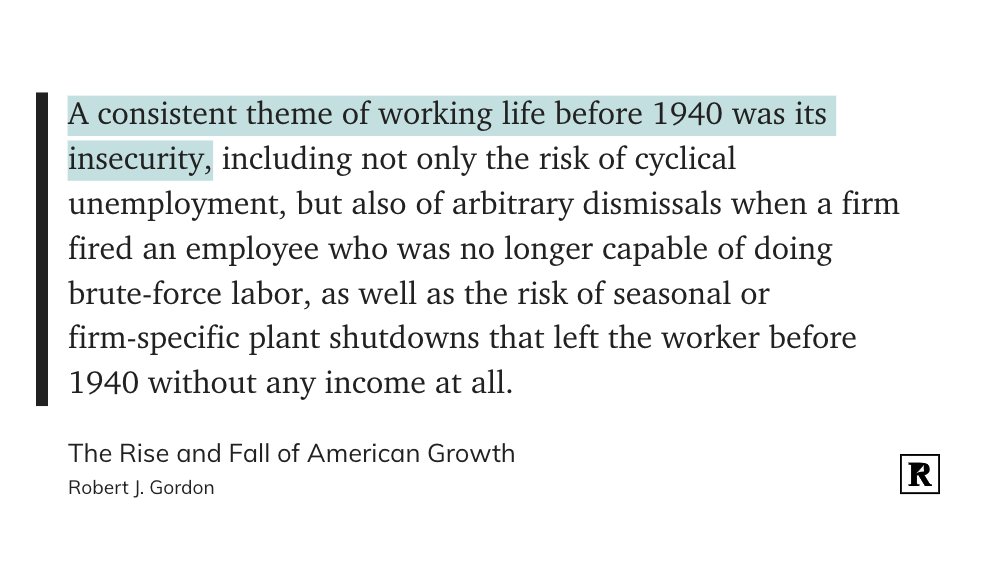

Day labor and piece work were gradually replaced with full-time permanent employment.

The American “worships the results of things that are big” but “hates anything that is big and powerful” pic.twitter.com/pU8mFGX7lY
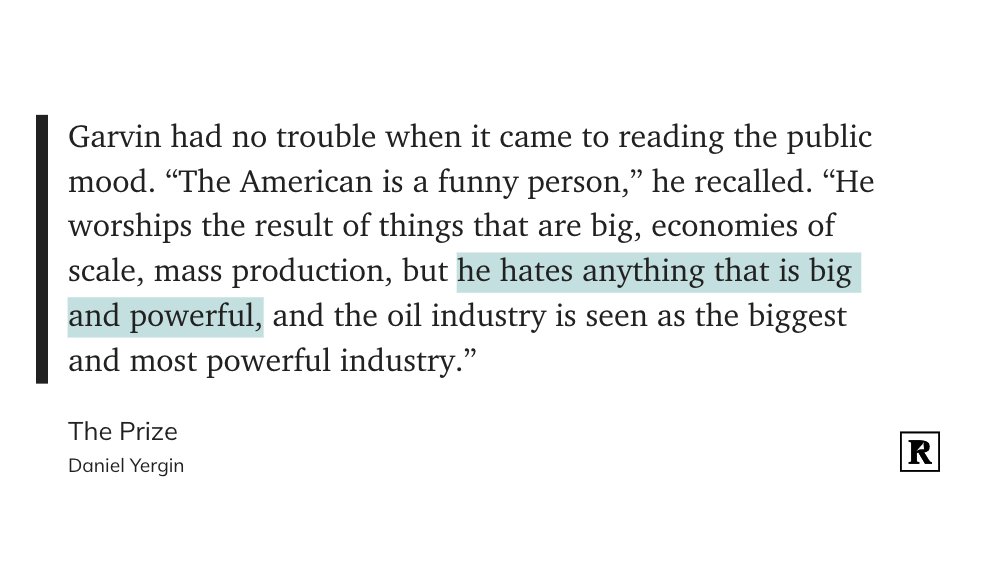
DEMAND solves all supply issues . but you must work and innovate and most of all CARE create constant demand
Fertility is either low or falling steadily everywhere, even in Africa. pic.twitter.com/3ZQBXzwADr
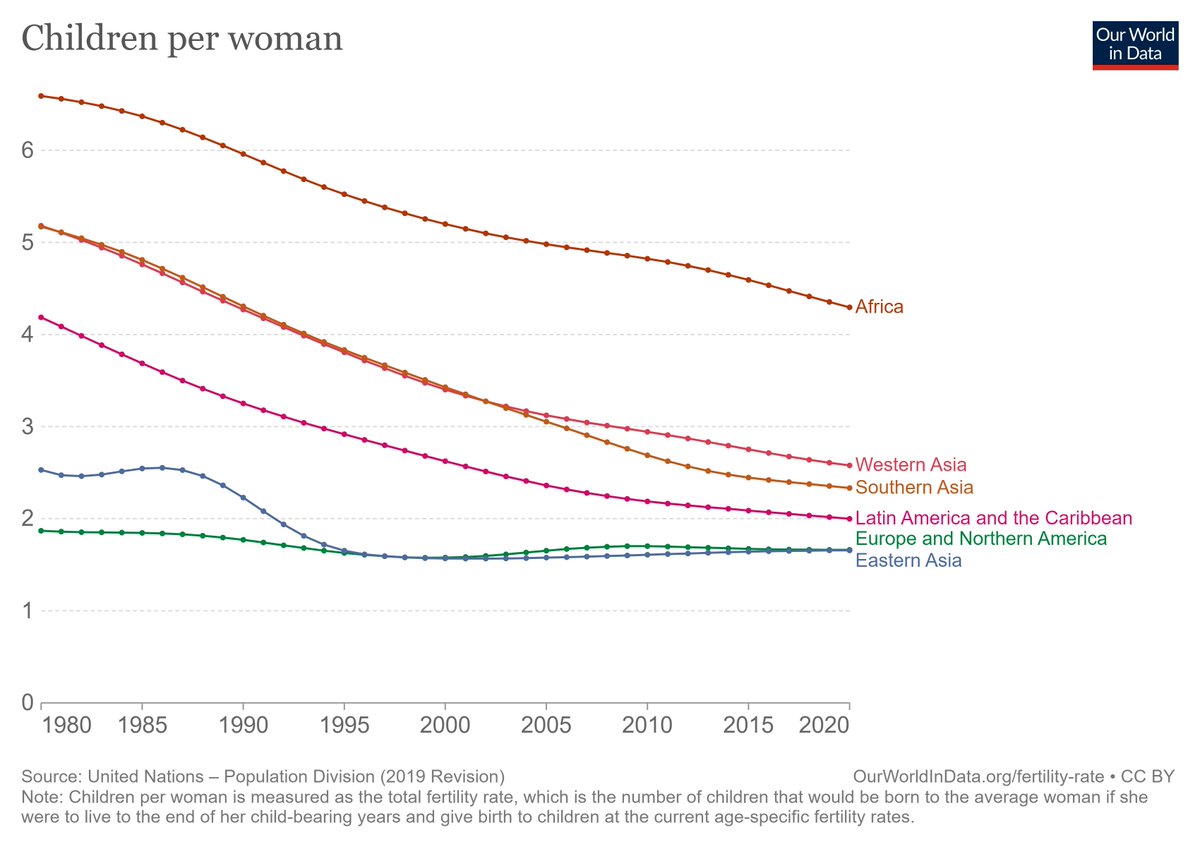
Collection of scattered quotes & ideas from Thomas Sowell. "If the government took over the Sahara Desert, there would be a shortage of sand."
Look at the products & services wealthy people use, because soon enough many of the products and services that they use to be more effective & happy will be cheap enough for the masses.
Students don't want to be there: - When asked whether they'd prefer the credential w/ 0 learning, or no credential w/ significantly more learning, they pick the former. - What other products do you pay for that you're happy when you can't access them? Very few.
MISALIGNED INCENTIVES: - When gov't increases subsidies, colleges raise prices. There's no incentive to change this, so price will keep rising. - Indeed, colleges lobby for increased borrowing limits so they can raise tuition proportionately.
RANKING IS RIGGED: - College rankings have a direct relationship between how much you spend per student (including real estate, athletics, etc). - So if you spend less & get the same output, your ranking will go down. - Measured by only inputs, not on any student outcomes...
Why is there no competition? The accreditation system, which determines who gets subsidies & tax breaks (hard to compete w/o them). It’s basically a government sponsored cartel, where the incumbent businesses get to decide who's going to compete, & how they're going to compete.
This is what happens when the government restricts supply: price escalates. Quality remains stagnant. The system is running as designed!
Sample solutions, perhaps we should consider: - Giving money to the students directly rather than indirectly via the gov't. - Subsidizing not only access, but also outcomes (paths to jobs) & be measured accordingly. - Ensuring colleges have skin in the game & share the risk
The term "sticky wages" explains when wages are slow to respond to market changes, but maybe "sticky status" is a more explanatory term— People refuse to work not b/c they're offered too little, but b/c the available jobs don't bestow the status they believe they're entitled to.
Ever day, 138,000 people are lifted out of poverty. That's been the trend for the last 25 years. That could have been the headline of every newspaper for the last 25 years. But it isn't because things getting steadily better isn't news. It doesn't spark outrage, it doesn't sell. pic.twitter.com/QP8I9EqMHu
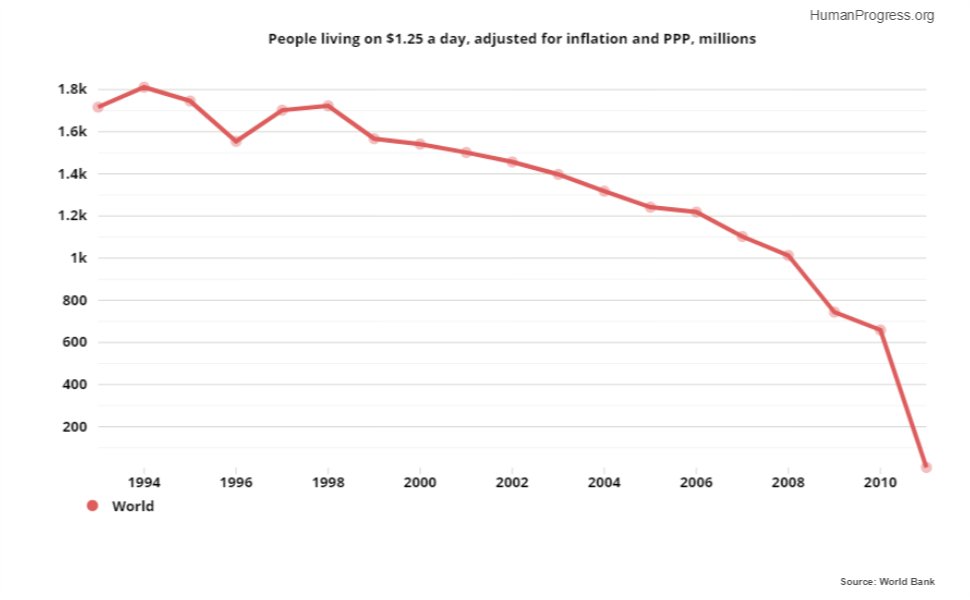
Intel’s Economic Impact Study shows the scope and scale of our impact and investment throughout all sectors of the US economy. We’re proud to support 52,000 American jobs and committed to ensuring the US continues to lead in semiconductor manufacturing. scq.io/FZjNUQf
I trust this random guy who owns a Pub and is seeing wing prices go up more than I trust the Fed and CPI about inflation twitter.com/QTRResearch/st…
That population growth has dried out. It's now the turn of India, China, and Africa pic.twitter.com/SXUD7XWbvb
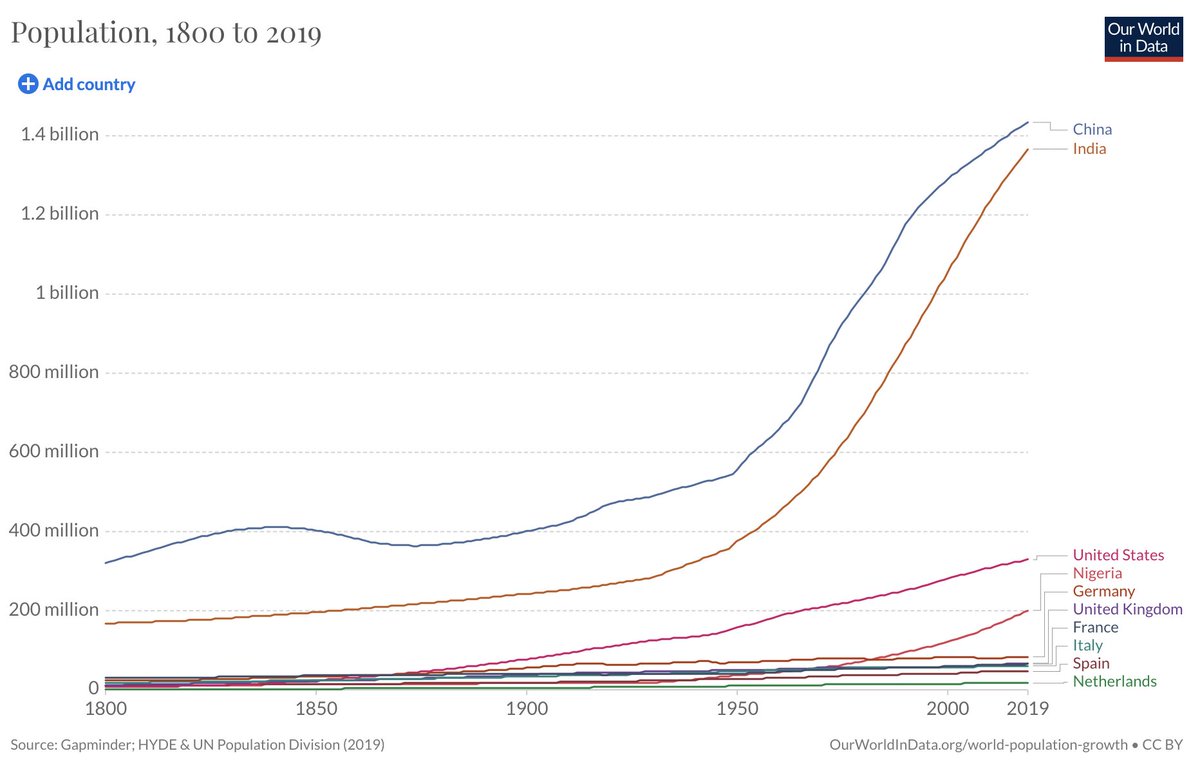
What the US did have much better than other Western countries between 1850 and 1950, however, is massive *population* growth. pic.twitter.com/qAxQpdTYuX
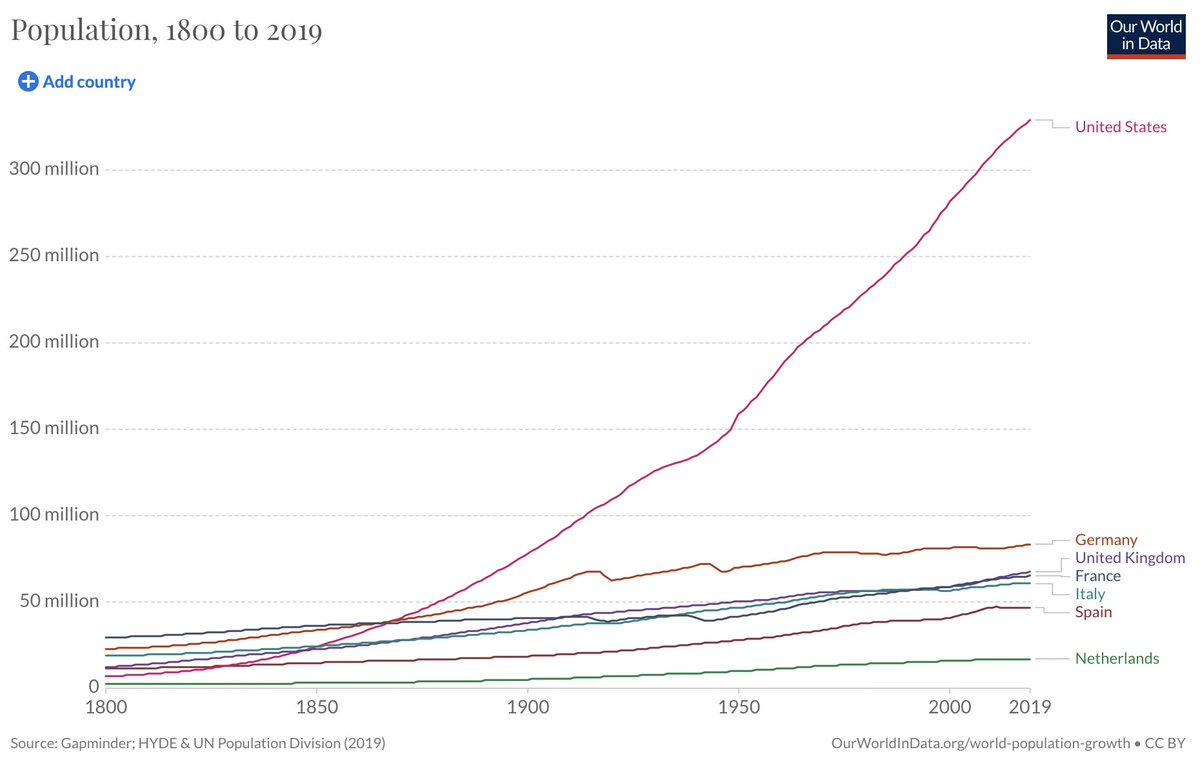
Any analysis of California’s economic success should note its monopolization of all of the warm, dry coastline in the largest market in the world.
Don't minimize costs - maximize revenues.
"We live in the age of infinite leverage, and the economic rewards for genuine intellectual curisotiy have never been higher." - @Naval • Read for free - Navalmanack.com • Purchase Paperback or Kindle - amzn.to/3gz3btY pic.twitter.com/vA1Y0KCtHE
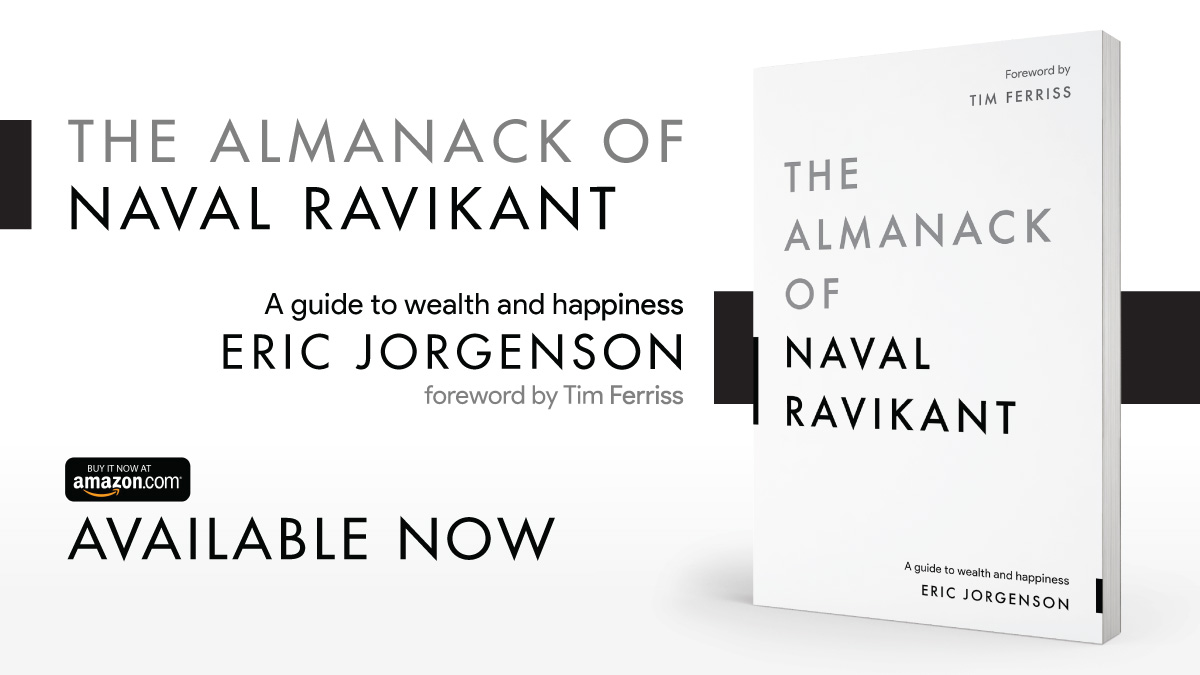
The road to socialism via inflation: • Print money, crash the reserve currency, destroy savers, and force them into inflated assets. • Asset inflation leads to inequality. Demonize asset holders and tax the nominal gains, thereby confiscating the real value of the assets.
On the bright side, we’re going to inflate our way out of student, housing, and pension debt… Call it The National Bailout.
Asset inflation (~) 2 yrs: • Non-tech stocks: 33% • Stocks: 45% • Tech stocks: 75% • Crypto: 10x • Real Estate: 15% • Oil: — • Gold: 40% • Commodities: 25% • Agriculture: 25% National savings being spent. If your portfolio isn’t up 30-50% (taxes), you’ve lost ground.
This is the last time a fiat currency bubble pops, because it’s the first time we have a viable alternative.
Subsidized child care and elder care, improved minimum wage, more investment in education and workforce development, internet for everyone — these will all be boons for our economy over the near and long run.
Incredible to think that chips are still getting way faster. Internet is getting faster. Computing is getting cheaper. Data is growing exponentially. Which means every interesting problem we’re solving today with software will be a step function better in the future.










